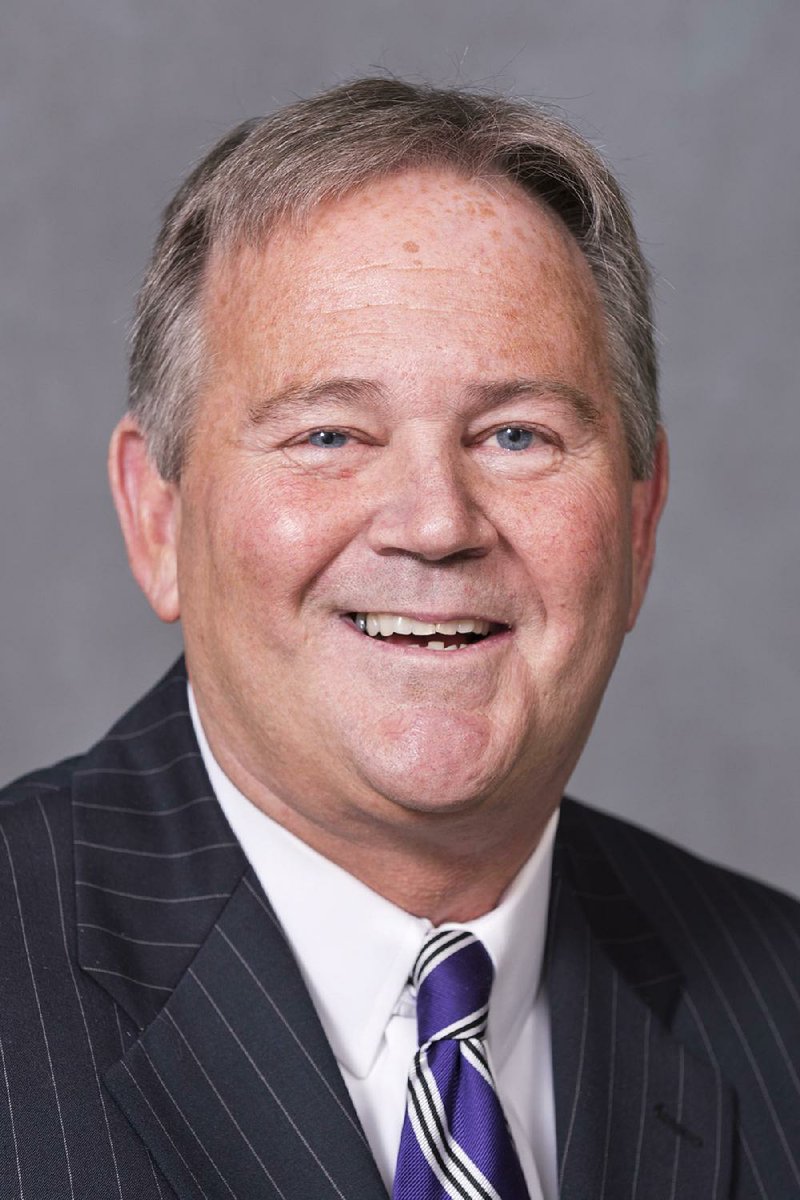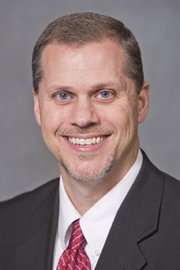A Little Rock trial attorney and a legislator turned circuit judge are seeking an Arkansas Supreme Court justice seat now held by a court veteran.
RELATED ARTICLES
http://www.arkansas…">U.S. senator's record fodder in contest http://www.arkansas…">Williams, Hopper squaring off http://www.arkansas…">Two in District 99 tout Linck's efforts http://www.arkansas…">Ex-Democrats Wagner, Rye set sights on House seat http://www.arkansas…">Early voting locations http://www.arkansas…">Local contested races http://www.arkansas…">Local and state district judicial races http://www.arkansas…">Party primary and nonpartisan judicial races http://www.arkansas…">March 1 primary changes campaigninghttp://www.arkansas…">Three try to unseat Cradduck in Republican primary http://www.arkansas…">Kinion, Mahony running for Washington County judge
FULL ELECTION COVERAGE
For Clark Mason -- who has spent about 32 years practicing law in the state -- the high-court vacancy marks an opportunity to take his decades of work experience, as well as his passion for the law, to the state's top bench.
Shawn Womack
Age: 43
Birthplace: Shawnee, Kan.
Residence: Mountain Home.
Family: wife, Melinda; two children.
Occupation: Circuit judge since 2009.
Business/political experience: Private law practice; state House of Representatives, 1999-2003; state Senate, 2003-09.
Education: Mountain Home High School; University of Central Arkansas, bachelor’s degree; University of Arkansas at Fayetteville, law degree.
Clark Mason
Age: 56
Birthplace: Urbana, Ark.
Residence: Little Rock.
Family: wife, Janell; three sons.
Occupation: attorney.
Business/political experience: 32 years experience as an attorney; owned private law practice since 1995.
Education: El Dorado High School; University of Mississippi, bachelor’s degree; University of Arkansas in Little Rock, law degree.
For Shawn Womack -- who spent 10 years as a Republican state legislator before becoming a circuit judge in the state's 14th Judicial District in 2007 -- the opening is an opportunity to be a staunch advocate for the separation of powers between the branches of government.
The two are seeking the Position 5 seat now held by retiring Justice Paul Danielson. Supreme Court justices serve eight-year terms in statewide positions and are each paid $166,500 a year. The chief justice, also an elected position, earns $180,000 a year. The nonpartisan judicial general election is March 1.
Shawn Womack
Womack, who grew up in Mountain Home, studied accounting at the University of Central Arkansas before going to the University of Arkansas at Fayetteville to get his law degree.
It was during his time in Fayetteville that Womack took an interest in politics and policy. Shortly after graduating in December 1996, he took a job in Washington, D.C., working for newly elected U.S. Sen. Tim Hutchinson, a Republican.
"I'm a little bit of a nerd when it comes to analyzing policy and how it affects people," Womack said. "I enjoy reading and seeing that stuff in action."
With a baby on the way, Womack and his wife, Melinda, moved back to Mountain Home in July 1997. Womack set up a private law practice that handled general work -- business matters, estate planning, and personal injury and criminal cases.
Womack then entered politics, winning a seat in the state House of Representatives in 1998. It was in Little Rock, he said, that he was able to apply the critical thinking he'd cultivated as a student of the law to the policies that affected everyday Arkansans. He served two terms and then a term in the Senate.
In the state Senate, Womack chaired a task force aimed at transitioning the state district court system into a full-time system. In 2003, he co-sponsored legislation to enact tort changes, which put some limits on the amounts of damages that can be awarded in civil trials.
In 2011, the state Supreme Court struck down a part of the tort changes, calling it unconstitutional and a violation of the separation of powers doctrine.
It is that doctrine, Womack said, that he wants to preserve if elected a justice.
"It's not the role of the court to try and determine what the outcome [of] or the policy ought to be," Womack said. "It has a very important role to play and a very limited rule."
In his seven years as a circuit judge, Womack has handled primarily domestic-relations and civil cases, as well as some juvenile-offender cases. He's particularly drawn to the latter, he said, because he's seen legal situations where children find themselves in a "bad position" that's out of their control.
"I had a burden, that I wanted to be involved in those cases and do something good for those kids," Womack said. "It's unfortunate that we ever see kids involved in the process, but we need to take special care to make sure that they don't get the bad end of the deal."
Womack said his experience as a judge and legislator would give the high bench valuable insight.
"A big function of the Supreme Court is dealing with statutory interpretation, what did the Legislature mean when they wrote those words on paper," he said. "Having been through the legislative and the committee process where you spend, sometimes hours, going over tedious issues making sure you use the right word here and the right punctuation there. ... I don't know if we've had many people in history who've brought both sides of it to [the state Supreme Court] like I have."
Last year, Womack was appointed a special justice to fill in after a pair of Supreme Court justices recused from a case related to a challenge of the state's gay-marriage law.
That appointment drew criticism from some people, including from attorneys representing the gay couples in the case, who were concerned about Womack's legislative record opposing gay-rights issues. Womack said that as a legislator, it was his job to advocate.
"As a judge, we follow the law. We're not policymakers as a judge," he said.
Clark Mason
Mason said that before he worked in the courtroom, he learned about hard work as a teenager, when he took a job in a local mill during the summers.
Raised outside El Dorado in Urbana, Mason -- whose mother was a nurse and whose father worked at the mill's commissary -- spent several summers in high school working at the local sawmill.
"Literally getting up at daylight. Being at work at 7 a.m. Working all day and coming home just dog-tired. Having supper and going to bed and doing the same thing all over again," he said. "To work with the people I got to work with, and understand what they went through every day. It wasn't just a summer job for them. It was a way of life, so I came to appreciate what they went through."
Working conditions were tough, he said, and accidents were common. But the older employees looked out for him, he said, and once he graduated from high school, he wanted to find a way to help people like them.
After graduating with a degree from the law school in Little Rock, Mason said he was blessed to join an established practice and learn the legal ropes from older, experienced attorneys.
"They taught me not only the law but how to be a lawyer," Mason said. "In other words: dignity, respect, professionalism, character and integrity."
Mason started his own firm in the early 1990s and has run his own business ever since. He has focused as a civil litigant, representing individuals, small businesses and farmers.
In one of his first big cases, Mason sued the manufacturer of a hay baler after a farmer lost both of his arms when he tried to fix a jam in the machine.
Mason's case, along with others across the state, led manufacturers to change the design of the balers to limit the exposure to operators' limbs.
Mason said that securing damages or settlements for clients is his job, and that getting companies or manufactures to change the way they do things to prevent future tragedies is a gratifying part of his work.
"I have gravitated towards the underdog, if you will," he said. "[I've learned] you have to keep the client's interest first. You have to understand that that's the most important thing going on in their life at that time. I may have other cases ... but to my client, their case is what matters."
Mason said that sensitivity and commitment to fairness -- developed over 32 years "in the trenches" -- would make him an invaluable member of the Supreme Court.
"Fairness and impartiality. No agenda. I'm not beholden to any special interest whatsoever. The only special interest I have is to the people of the state and the business that they run or the farms they may operate," he said. "I will do everything in my power to make sure that anything, any case I'm involve with, is treated expeditiously ... with absolute fairness, no matter who may be named as a party."
SundayMonday on 02/14/2016

